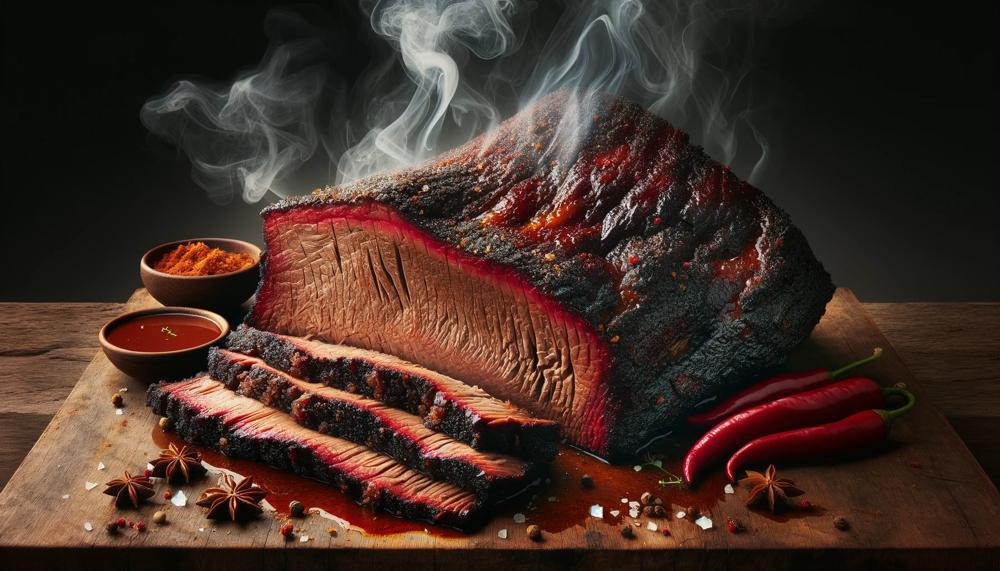Yes, it’s true—using too much charcoal can indeed pose significant risks to your health. Recent studies have highlighted alarming consequences ranging from gastrointestinal distress to serious respiratory issues. Imagine firing up the grill for a weekend barbecue, only to find out later that your charcoal habits could be impacting more than just the flavor of your burgers. Excessive use of charcoal has been linked to gastrointestinal inflammation, akin to the discomfort caused by spicy foods that just won’t agree with you.
Moreover, inhaling charcoal particles can lead to respiratory ailments reminiscent of those found in coal miners, highlighting a less savory side to our favorite outdoor cooking staple. In this article, we’ll delve into the key reasons why moderation is crucial when it comes to charcoal use, unpacking the health risks and implications you might not be aware of. Before you fire up next time, consider these key takeaways:
- Gastrointestinal issues can arise from excessive charcoal consumption.
- Respiratory problems may develop due to inhalation of charcoal particles.
- Moderation and awareness are essential for safe charcoal usage.
Join us as we explore the hidden dangers behind that smoky flavor and how to enjoy your grill time without compromising your health.
Contents
What Is Activated Charcoal?

Activated charcoal is a fine, black dust made by superheating natural sources of carbon, like wood, coconut shells, or bone char. This process increases its ability to absorb toxins due to a high surface area.
Commonly utilized in water purification, medicine, and detoxifying chemicals, its adsorption qualities make it a useful resource in many practical applications.
However, despite its widespread use in treating poisonings and overdoses, its effectiveness and safety are not entirely verified by scientific research.
The following table outlines the key attributes and uses of activated charcoal:
| Attribute | Description |
| Color | Black |
| Texture | Fine powder |
| Source Material | Wood, Coconut Shells, Bone Char |
| Uses | Water filtration, medical treatments, chemical purification |
| Effectiveness | Varies, not fully backed by scientific studies |
| Health Concerns | Gastrointestinal issues, potential lung infections when inhaled |
How Does Activated Charcoal Work?
Activated charcoal works through a process called adsorption, where toxins and unwanted chemicals bind to its surface. Derived from natural sources like coconut shells, coal, or wood pulp, it’s heated to extremely high temperatures to create a highly porous structure with a large surface area.
This increased surface area enables it to effectively trap and hold various substances, including toxins and chemicals, preventing their absorption in the body.
Here’s a detailed explanation of how activated charcoal functions:
| Step | Process | Details |
| 1 | Activation | Charcoal is heated to high temperatures, altering its structure and making it more porous. |
| 2 | Adsorption | Toxins and chemicals bind to the surface of the activated charcoal particles, a process known as adsorption. |
| 3 | Application | In cases of poisoning or overdose, activated charcoal is administered to trap toxins in the digestive system, preventing their absorption into the bloodstream. |
| 4 | Limitations | Not effective for certain substances like acids, iron, lithium, alcohols, alkali, or gasoline. |
Activated charcoal’s efficacy in emergency situations is notable but it’s important to understand its limitations and potential risks. It should only be used under medical supervision for specific cases, as misuse can lead to health issues like gastrointestinal discomfort or lung infections.
Activated Charcoal Benefits
| Benefits | Explanation |
|---|---|
| Detoxification | Activated charcoal is widely used to remove toxins and chemicals from the body, making it a popular choice for detoxification. It works by trapping the toxins in its pores and preventing their absorption into the body. |
| Alleviating gas and bloating | When taken orally, activated charcoal can help alleviate gas and bloating by binding to the byproducts of digestion that can cause discomfort. It is known for its ability to absorb excess gas in the digestive system, providing relief from bloating. |
| Lowering cholesterol | Studies have suggested that activated charcoal may be effective in lowering cholesterol levels by binding to cholesterol and preventing its absorption in the gut. This can contribute to improved heart health and reduced risk of cardiovascular diseases. |
| Reducing the effects of radiation | Activated charcoal has been explored for its potential to mitigate the effects of radiation exposure by binding to radioactive isotopes and facilitating their elimination from the body. This property makes it valuable in certain medical treatments and emergency situations. |
| Anti-aging | The detoxifying properties of activated charcoal can aid in purifying the skin and reducing the effects of aging. It helps in clearing pores, removing impurities, and promoting a healthier complexion, making it a popular ingredient in skincare products. |
| Emergency poison treatment | Activated charcoal is commonly used as an emergency treatment for poisoning as it can effectively bind to many types of toxins and prevent their absorption in the gastrointestinal tract, reducing their harmful effects on the body. |
| Enhancing kidney function | By reducing the burden on the kidneys caused by filtering toxins from the blood, activated charcoal may help enhance kidney function. It can assist in eliminating waste products from the body, supporting overall kidney health. |
| Improving digestion | Activated charcoal can aid in improving digestion by alleviating symptoms of indigestion, such as bloating and discomfort. Its ability to absorb excess gas and toxins in the digestive system contributes to smoother digestion. |
| Whitening teeth | Activated charcoal is known for its teeth-whitening properties due to its ability to absorb stains and plaque from the surface of teeth. It is often used as a natural remedy for achieving a brighter smile. |
| Filtering water | Activated charcoal is an effective water filtration agent, capable of removing impurities, chemicals, and odors from water. It is widely used in water purification systems to ensure clean and safe drinking water. |
Who Should Not Use Activated Charcoal?
Activated charcoal is not suitable for everyone. Specifically, it should be avoided by:
- Individuals with an unprotected airway: Those who are unconscious or semi-conscious and at risk of choking should not use activated charcoal, particularly if there’s a chance they may need intubation.
- Cases involving non-absorbable toxins: It is ineffective against poisons such as metals, acids, alkalis, certain minerals, or alcohols, and thus should not be used in these cases.
- People with reduced gut motility: Those on medications like opioids or anticholinergics, which slow down the gut, should avoid repeated doses of activated charcoal as it can exacerbate the condition.
- When using certain medications: Its use is contraindicated with drugs that treat constipation, such as laxatives containing sorbitol, due to increased risks of dehydration.
- Without professional supervision: Its use should be limited to acute situations under healthcare supervision, particularly in cases of overdose or poisoning, and not used long-term without a doctor’s advice.
- Medication interference: Activated charcoal can interfere with the absorption of other medications and supplements. It is recommended to avoid taking any other substances within two hours of using activated charcoal unless directed by a healthcare provider.
Activated Charcoal Dosages
| Age Group | Recommended Dosage of Activated Charcoal | Usage Guidelines |
| Adults and Teenagers | 50 to 100 grams given one time | Ensure intake 2 hours apart from other medications to prevent absorption interference. |
| Children (1-12 years) | 25 to 50 grams given one time | Consult healthcare professional for exact dosage and timing. |
To safely use activated charcoal, it’s crucial to stick to the recommended dosages based on age groups. For adults and teenagers, a single dose typically ranges from 50 to 100 grams, while children aged 1 through 12 years usually take 25 to 50 grams at once. It’s essential to follow these guidelines to avoid using too much:
- Timing Matters: Take activated charcoal at least 2 hours apart from any medications to prevent it from interfering with their absorption.
- Consultation is Key: Always seek guidance from a healthcare provider, especially when administering activated charcoal to children, to ensure the correct dosage and timing.
- Strict Adherence: Stick strictly to the prescribed amount as exceeding the recommended dosage can lead to adverse effects.
What Are the Risks of Taking Activated Charcoal?
Activated charcoal, while beneficial for certain health applications, comes with notable risks that require careful consideration. Here’s a breakdown of the main hazards associated with its use:
- Aspiration: If inhaled accidentally, activated charcoal can enter the lungs, leading to severe irritation and potentially dangerous inflammation known as aspiration pneumonitis.
- Nutrient Absorption: Activated charcoal can hinder the digestive process by absorbing essential nutrients, which can lead to nutritional deficiencies if used frequently or improperly.
- Medication Interaction: It can reduce the effectiveness of other medications and supplements by absorbing them before they can take effect in the body. This interaction is critical for individuals on life-sustaining medicines.
- Gastrointestinal Health: Frequent use can cause constipation, dehydration, and in severe cases, lead to gastrointestinal blockages, which are medical emergencies.
- Drug Interactions: Combining activated charcoal with cathartics, such as sorbitol or magnesium citrate (often used to treat constipation), can lead to dangerous electrolyte imbalances and other complications.
Conclusion
The allure of a smoky flavor from charcoal grilling is undeniable, yet moderation is the key to enjoying its benefits without compromising health. Excessive use of charcoal, especially when dealing with activated charcoal, presents potential health risks that cannot be overlooked. Gastrointestinal distress, akin to the discomfort from overly spicy foods, and respiratory issues similar to those experienced by coal miners, are real concerns associated with overusing charcoal.
To mitigate these risks, it’s essential to maintain a balanced approach. Use charcoal judiciously, ensuring that it does not overpower your health or the environment. Opt for high-quality charcoal and maintain proper grilling techniques to minimize the release of harmful particles. Additionally, be aware of the specific uses and limitations of activated charcoal in medical scenarios to prevent unintended health complications.
Remember, the secret to a safe and enjoyable grilling experience lies not just in the ingredients or the equipment but in how you use them.






